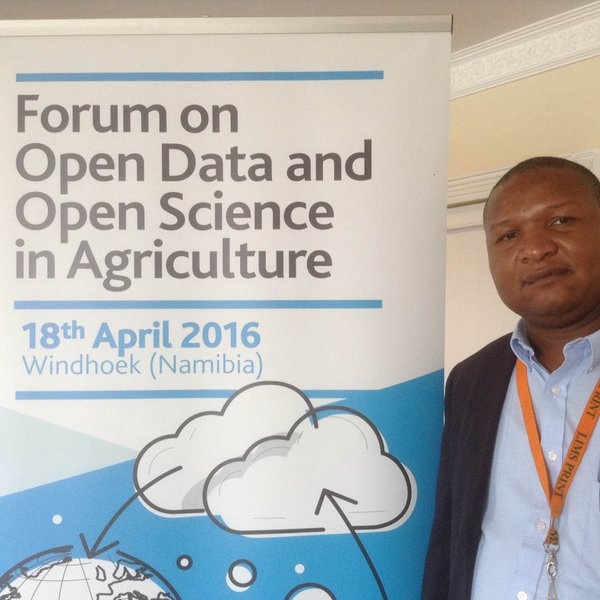Namibian media picks up on Forum for Open Data and Science in Agriculture with slot on TV news

Sub-Saharan Africa (SSA) is facing interlocking challenges of climate change, diminishing land and water resources, harvest losses and population growth, all of which are exacerbating the food security of millions of people.

In one way or another the concept of open data – especially in agriculture, is going to be answering some big questions about the future of global food security, and undoubtedly the benefits of data-sharing in agriculture are most keenly felt by farmers and rural communities.
However, open-data’s potential stretches beyond this. It has the power to ramp-up Namibia and SSA’s employment sectors by creating jobs, improving transparency in the agricultural sector, and empowering consumers through information sharing.
Participants at the Forum, which hinged around two senior-level panel sessions (see panelist list), were asked to look at best practices in Open Data and to improve on shortcomings. The Namibian Broadcasting Corporation broadcast a clip of the opening sessions on TV news including speeches by Prof. Jairos Kangira – Dean, Faculty of Humanities and Social Sciences, University of Namibia, Miss J F N Andowa - Director: Directorate of Research and Training, Ministry of Agriculture, Water and Forestry, and Dr Babagana Ahmadu, FAO Representative to Namibia.
They stressed the need for meaningful action on a sizeable scale involving stakeholders across the full agricultural spectrum. One of Namibia’s key development goals is to move towards a knowledge-based society. Yet while it is ranked as a Medium Development Country distribution of wealth in Namibia is sharply skewed with many rural communities still living in poverty and agriculture the mainstay of millions.
Education and open-access to agricultural information – which the Food and Agriculture Organization of the United Nations (FAO of the UN) is supporting through capacity development drives such as these four forums in Africa (Namibia is the second), are being pitted as twin pillars in overcoming these challenges and moving Namibia and SSA towards achieving their development goals.
 The speakers noted how Namibia’s Ministry of Agriculture, Water and Forestry has been actively involved in pioneering data-collection aimed at improving agricultural activities and rural communities. And how the Faculty of Humanities and Social Sciences at the University of Namibia is promoting sustainable agricultural and natural resource development through teaching and research programmes.
The speakers noted how Namibia’s Ministry of Agriculture, Water and Forestry has been actively involved in pioneering data-collection aimed at improving agricultural activities and rural communities. And how the Faculty of Humanities and Social Sciences at the University of Namibia is promoting sustainable agricultural and natural resource development through teaching and research programmes.
(Photo: Mr Chenjerai Mabhiza from #UNAM, a key Forum organizer)
As Namibia confronts the question of food security the Faculty was recently awarded a grant for the Edulink II project, a networking project for Academic Excellence on Agriculture and Food Security aimed at promoting innovation and collaboration between Higher Education institutes in Africa, the Caribbean, the Pacific and Europe.
Beyond agriculture, another example of how Namibia is moving towards innovative approaches to open-data sharing comes from 23 year old entrepreneur Amugongo Mbangula Lameck, who has developed the first Namibian open data portal to work as a catalyst to facilitate the publication of more and higher quality public data.
His portal stands out for the fact that citizens would be able to become data collectors, uploading and sharing their data on the portal. Once up and running the portal is likely to send a strong message that Namibia has the capacity to develop state-of-the-art technological infrastructure.
More of these kinds of innovations are what open data and open science in Namibia and SSA have on the horizon, and initiatives like the Forum in Namibia this week are a vital way to publicize the “open data” cause.
Look out for further reports about the specific outcomes of the Namibia Forum.


